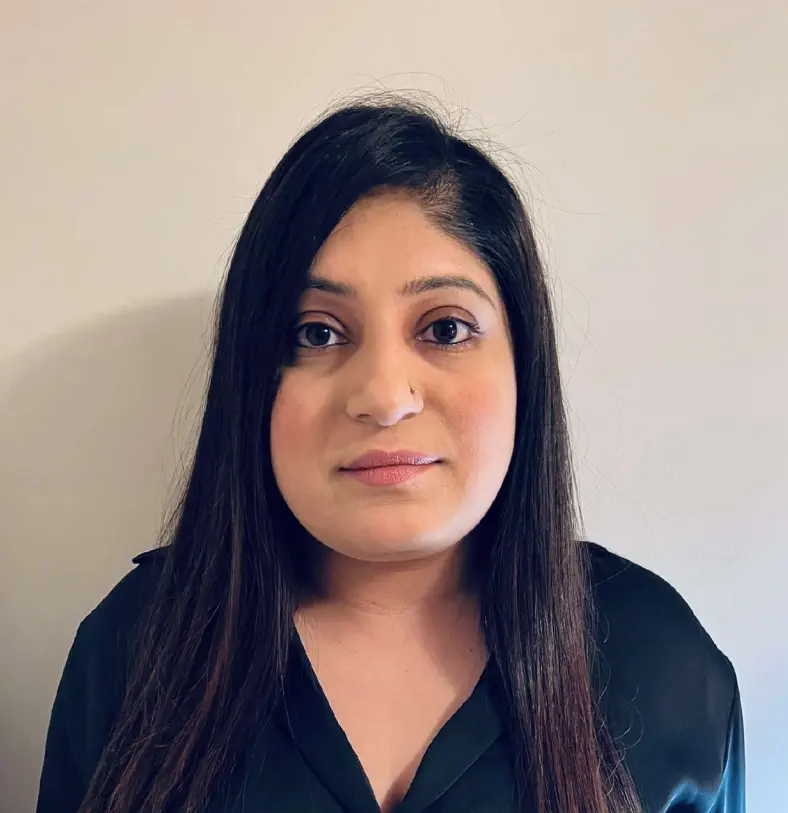We offer medical detox and multiple addiction treatment options in our
luxury treatment centres in Port Hope, Cobourg, and Ottawa.
Zoloft and Weed: Can They Be Used Together Safely?
Mixing medications with recreational substances poses significant questions about safety and effectiveness. The concurrent use of Zoloft and weed specifically raises concerns among patients seeking relief from mental health symptoms while also using cannabis.
Key Takeaways
- Zoloft and Weed Affect Brain Chemistry Differently - Combining them may lead to unpredictable effects due to their impact on serotonin and other neurotransmitters.
- Side Effects Can Intensify - Using both may increase drowsiness, dizziness, memory issues, and concentration problems.
- Mood and Anxiety May Worsen - Cannabis can counteract Zoloft’s benefits, especially in high-THC strains.
- Risk of Dependency and Treatment Disruption - Mixing the two may lead to psychological reliance and make it harder to track treatment progress.
- Talk to Your Doctor - Honest discussions and symptom tracking help reduce risks and guide safer use.
Let's examine the potential interactions, risks, and considerations when these two substances meet in your system.

What is Zoloft (Sertraline)?
Zoloft belongs to the SSRI family – medications that rewire how your brain handles serotonin. When depression or anxiety hits hard, doctors often reach for this prescription first. Sertraline essentially creates a serotonin “traffic jam” in your neural pathways, letting this mood-boosting chemical linger where it counts.
Unlike quick fixes that hit your system immediately, Zoloft takes its time. Most people stare at the ceiling for 2-4 weeks, wondering if anything's happening while their brain chemistry quietly rebalances. This gradual approach sets SSRIs apart from substances that deliver instant mood shifts.
A common worry that pops up: Is Zoloft addictive? The short answer? Not in the traditional sense. Your body adapts to its presence – explaining those withdrawal symptoms if you quit suddenly – but you won't find yourself chasing higher doses or spiraling out of control.
Common Uses of Zoloft
Doctors can prescribe Zoloft for anxiety when the person struggles with:
- Everyday worries that balloon into all-consuming dread
- Social situations that feel like walking barefoot on hot coals
- Panic that strikes out of the blue
- Thoughts and rituals that loop endlessly
- Trauma that refuses to fade into the past
Many patients report significant improvement when using Zoloft for anxiety disorders, often noticing reduced physical symptoms like racing heart and shallow breathing within 3-4 weeks of consistent use.

Potential Side Effects
While Zoloft helps countless people reclaim their lives, it comes with baggage:
Common side effects:
- Nausea and digestive disturbances
- Sleep pattern changes (insomnia or excessive drowsiness)
- Headaches
- Sexual dysfunction
- Dizziness
- Dry mouth
Serious side effects:
- Serotonin syndrome (excessive serotonin accumulation)
- Increased suicidal thoughts (particularly when starting treatment)
- Unusual bleeding
- Vision changes
- Seizures
Though rare, these more worrying symptoms demand immediate medical attention. Patients should have open lines of contact with their doctors regarding any side effects.
What is Marijuana (Weed)?
The cannabis plant packs more than 100 different cannabinoids – chemical compounds that hook up with your body's internal cannabinoid system. THC and CBD lead the pack, with THC delivering that classic marijuana high while CBD works more subtly without the mental roller coaster.
The plant's sticky flowers contain the motherlode of these compounds. However, today's cannabis appears in countless forms – from old-school smoking to precisely measured tinctures, gummies, and even luxury skin creams.
Common Uses of Marijuana
Recreational users seek that reality shift – where tension melts away, colors pop, minutes stretch like taffy, and mood lifts. This mind-bending happens when THC locks into specific receptors scattered throughout your brain.
On the medicinal front, people turn to cannabis when traditional options fall flat:
- When pain pills barely touch constant aching
- To jumpstart appetite during brutal cancer treatments
- For MS muscle spasms that won't back down
- To quiet seizures that resist standard medications
- When counting sheep turns into counting hours awake
- To tame anxiety (though sometimes it backfires spectacularly)
The therapeutic landscape continues evolving as research expands, with varying legal status across Canadian provinces.

Potential Side Effects
Short-term effects of marijuana use include:
- Altered perception and cognitive function
- Impaired memory and concentration
- Coordination difficulties
- Increased heart rate
- Dry mouth
- Red eyes
- Anxiety or paranoia (in susceptible individuals)
Long-term concerns, particularly with regular use, include:
- Dependency potential
- Respiratory issues (when smoked)
- Cognitive impacts, especially with adolescent-onset use
- Potential exacerbation of underlying mental health conditions
- Amotivational symptoms
Weed abuse symptoms typically creep in unnoticed – placing getting high ahead of responsibilities, feeling on edge when you can't use, or repeatedly breaking promises to yourself about cutting back. Spotting these patterns isn't about judgment but honest reality-checking.
Interactions Between Zoloft and Marijuana
Pharmacokinetic Interactions
Your liver processes both Zoloft and marijuana through the cytochrome P450 enzyme system – think of it as a metabolic highway with limited lanes. Research on Prozac and weed interactions also reveals similar metabolic competition in the liver, suggesting these concerns extend across the entire SSRI class. When THC merges into traffic, it essentially cuts off sertraline's access, potentially causing Zoloft to build up beyond intended levels in your bloodstream.
Research suggests this metabolic competition may amplify adverse effects, including:
- Pronounced dizziness
- Excessive sedation
- Concentration difficulties
- Psychomotor impairment
Individual genetics, dosage, frequency of usage, and other drugs all greatly affect these interactions.
Pharmacodynamic Interactions
Beyond processing issues, Zoloft and weed directly mess with how your brain functions. While Zoloft boosts serotonin availability, THC plays a complex game with multiple brain chemicals – including serotonin, dopamine, and glutamate.

This neurochemical tangle creates unpredictable outcomes:
- THC potentially canceling out the very anxiety relief you're taking Zoloft for
- Cannabis masks depression symptoms without fixing the underlying issues
- Both substances' sedative effects piling up, leaving you more impaired than expected
Some users report that cannabis helps them weather the initial Zoloft adjustment storm. Though tempting, this “DIY” approach carries significant risks and deserves a frank discussion with your healthcare provider.
Risk of Serotonin Syndrome
The heavyweight champion of potential interactions is serotonin syndrome – when your body builds up dangerous levels of serotonin. While researchers haven't definitively linked cannabis to triggering this condition, caution makes sense given THC's complicated relationship with serotonin.
Watch for these warning signs:
- Restlessness that won't let you settle
- Confusion that doesn't match your usual thinking
- Heart racing and blood pressure climbing
- Pupils expanding beyond normal
- Muscles twitching or becoming unnaturally stiff
- Temperature spiking for no apparent reason
- Sweating through your clothes when it's not hot
This condition demands immediate medical attention – especially if symptoms escalate from "this feels off" to "something seriously wrong."
Risks of Using Zoloft and Marijuana Together
Increased Side Effects
When sertraline and weed cross paths, side effects don't just add up – they multiply:
- Mild drowsiness transforms into fighting to keep your eyes open
- Slight dizziness upgrades to feeling like you're on a carnival ride
- Minor concentration issues bloom into complete thought derailment
- Memory glitches worsen from misplacing keys to forgetting appointments
- Dry mouth advances from minor nuisance to feeling like you're chewing sand
These amplified effects reach beyond simple discomfort – they can seriously impact your ability to drive safely, function at work, maintain relationships, and handle everyday responsibilities. The unpredictable nature of these interactions poses particular challenges for patients trying to stabilize their mental health.
Potential Cognitive and Mood Impacts
The very reason you're taking Zoloft – to level out mood and ease anxiety – might get sabotaged by cannabis use. Mental health professionals report troubling patterns:
- Weed's mood alterations can create false "good days" that mask whether your depression medication is actually working
- High-THC strains can trigger paradoxical anxiety, effectively canceling out what you're taking Zoloft for in the first place
- The combined brain fog makes problem-solving, organization, and focus significantly harder than either substance alone would cause
Long-Term Health Concerns
Abusing Zoloft and marijuana together for a prolonged period raises red flags that deserve serious consideration:
- Building tolerance to both substances, potentially driving increased usage
- Blurring the line between genuine therapeutic benefit and simply chasing a high
- Cannabis dependency sneaking in alongside your prescribed treatment
- Taking medication inconsistently as cannabis use fluctuates
- Mental health symptoms swinging up and down rather than steadily improving
These issues mirror what happens when cannabis meets other medications in the same family, like mixing Prozac and weed. The entire SSRI class tends to interact with cannabinoids in similar ways.
While research on Zoloft addiction remains limited, cannabis dependency presents well-documented challenges. The combination potentially complicates the discontinuation of either substance when medically indicated.
Treatment Interference
A rarely discussed but critical concern involves Zoloft actually doing its job properly. Cannabis can mask symptoms that would otherwise signal whether your medication needs adjustment. This interference potentially leads to:
- Missing opportunities to fine-tune your dosage
- Confusion about whether side effects stem from medication or cannabis
- Healthcare providers struggling to accurately assess your progress
- Prolonged suffering when a simple medication change might have helped
This becomes especially problematic for those engaging in Zoloft abuse. Combined with cannabis, this pattern significantly increases risks while potentially undermining any therapeutic benefits.
Psychological Dependency Complications
While physical Zoloft addiction isn't technically accurate, psychological dependency on the combination of Zoloft and weed presents real challenges. Some patients report feeling trapped – unable to function without both substances – creating a complex situation where:
- Anxiety spikes at the mere thought of stopping either substance
- Self-medication becomes deeply ingrained and resistant to change
- The original treatment plan gets lost in the shuffle
- Professional guidance takes a backseat to peer advice or internet forums
This dependency pattern doesn't mirror classic addiction but significantly complicates recovery and treatment outcomes.

Safe Practices and Harm Reduction
Consultation with Healthcare Providers
Let's face it – telling your doctor about using Zoloft and weed together feels awkward at best. But this conversation allows your provider to:
- Spot specific risk factors in your unique health picture
- Watch for unusual reactions that might signal trouble brewing
- Make necessary adjustments to your treatment approach
- Suggest practical ways to reduce potential harm
Remember that medical confidentiality protects these discussions in most cases. Your honesty helps your doctor treat the actual you – not just the version that shows up for appointments.
Monitoring and Adjustment
Patients combining sertraline and weed benefit from structured self-monitoring practices:
- Track mood, anxiety, and other symptoms with a simple rating system
- Log when you use cannabis relative to taking your medication
- Note any unusual physical or mental effects
- Keep those follow-up appointments – even when feeling fine
- Consider scaling back cannabis during the early Zoloft weeks when your system runs especially sensitive
This methodical tracking helps separate genuine improvement from temporary relief, guiding better decisions about continued dual use.
Your healthcare provider might suggest tweaking your approach – perhaps changing cannabis timing, selecting different strains, or modifying your Zoloft dosage. Any changes should happen gradually and with medical oversight to prevent symptoms from rebounding.
Education and Awareness
Knowledge empowers better choices around Zoloft and marijuana:
- Stay current on emerging research about these interactions
- Know your region's legal landscape regarding cannabis
- Learn to recognize the warning signs of abusing Zoloft or developing cannabis dependency
- Explore harm reduction strategies tailored to your situation
- Consider trying cannabis products with lower THC and higher CBD ratios if continuing use
Understanding both substances helps you make informed choices that align with your mental health goals while minimizing potential harm.
Making Informed Choices
Navigating this complex territory requires balancing medical recommendations with personal realities. While completely separating Zoloft and weed represents the safest approach, many find themselves using both concurrently.
For those walking this path, prioritizing mental health stability helps maintain perspective. If cannabis remains part of your life, consider how it might support rather than undermine your treatment. This might mean reconsidering which strains you choose, when you use them relative to medication, or your consumption method.
The healthcare approach continues evolving beyond simplistic prohibitions toward nuanced, individualized guidance. This shift acknowledges complex patient realities while encouraging honest communication about all factors influencing mental health treatment.
FAQ
Can mixing mood meds and cannabis trigger dangerous reactions?
Some combinations increase the risk of excessive drowsiness, coordination problems, and potentially serious serotonin buildup.
Does weed cancel out my antidepressant's benefits?
Cannabis might temporarily mask symptoms while potentially working against your medication's chemical effects.
How should I time my prescription and cannabis use?
Your unique metabolism and medication schedule require personalized medical guidance rather than generic timing rules.
Are certain cannabis products safer with antidepressants?
Products with minimal THC and higher CBD generally present fewer interaction concerns.
Will honesty about cannabis use jeopardize my prescription?
Most healthcare providers prioritize treatment success through open dialogue rather than judgment or medication withdrawal.






